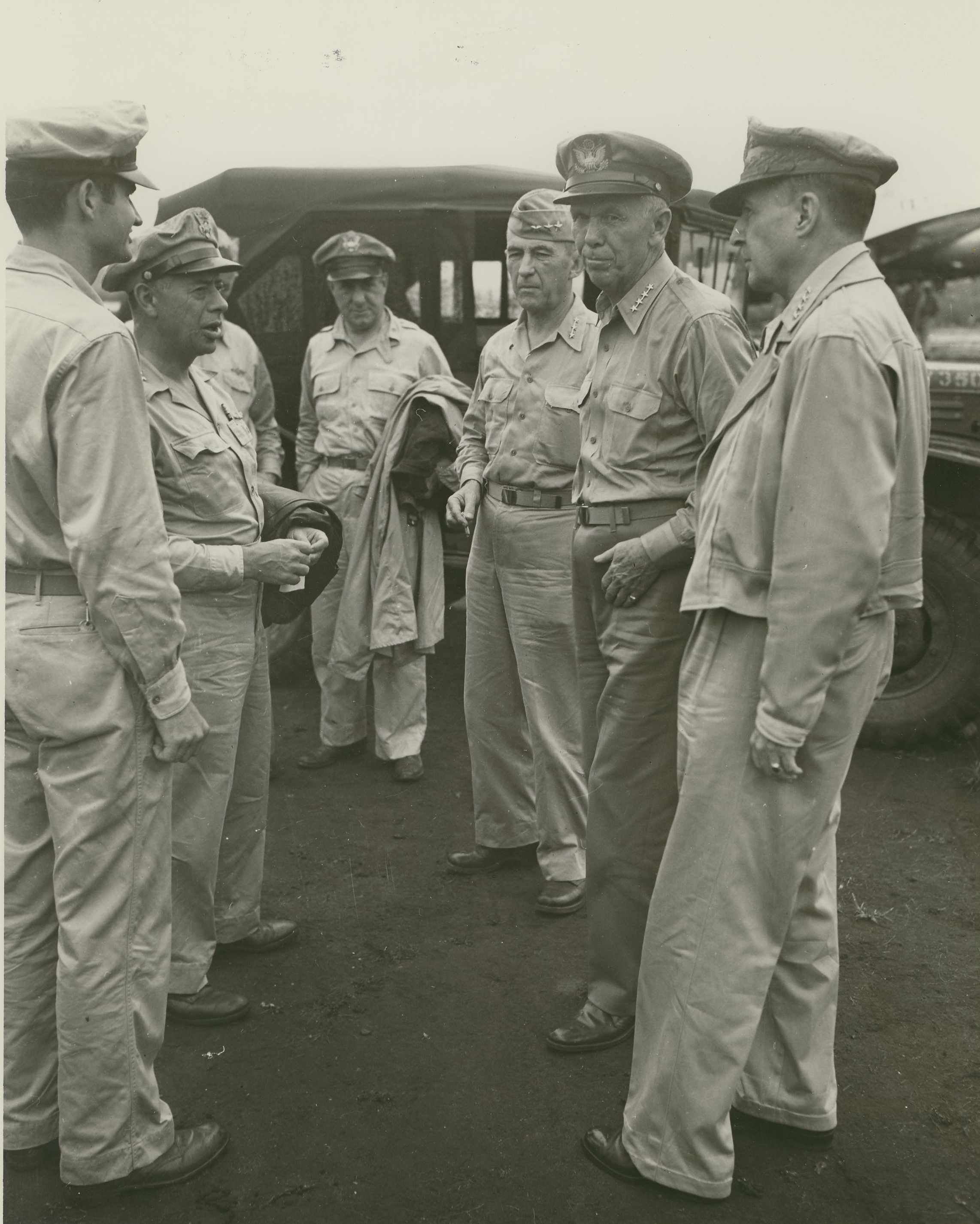Secretary of the Army Frank Pace was asked personally to relieve General Douglas MacArthur until President Truman learned the announcement was to be preempted by a news leak. In what was to become its own ‘day of infamy,’ Truman hastily arranged a press conference to announce MacArthur’s relief. MacArthur himself learned of his fate from his wife, Jean, who had heard a radio report. The fallout from the handling of the situation left a lasting scar on Truman’s administration and on George C. Marshall, whom many blamed for the firing of an American icon.

MacArthur’s comments on the situation in Korea had begun to stray from military affairs into the political and were not on task with America’s foreign policy. Truman had even met with MacArthur in October 1950 to discuss the situation in Korea during the private Wake Island Conference. The meeting seemed to fix the situation, but the fix was only temporary. On March 24, 1951 MacArthur gave a press conference based on his own views of the conflict, without permission from the White House or the United Nations:
“The enemy must by now be painfully aware that a decision of the United Nations to depart from its tolerant effort to contain the war in Korea, through an expansion of our military operations to his coastal areas and interior bases doom Red China to the risk of imminent military collapse.”
Fearing a larger war with China (and possibly the USSR), President Truman called in the Joint Chiefs and Secretary of Defense George C. Marshall. Recalling the situation in a 1957 interview with General Omar Bradley, Chairman of the Joint Chiefs, Marshall Biographer Forrest Pogue did not shy away from the topic:
POGUE: But the likes of you or Gen. Marshall or anybody else certainly did not figure in the removal of him from there. I mean there was a clear cut point there, wasn’t it?
BRADLEY: Well, the decision was the President’s. And when as the members of the Joint Chiefs of Staff…whether or not he was justified in doing it…we had to admit that he was, because MacArthur would not carry out the orders of the President. They were not the orders of the Joint Chiefs. They were the orders of the President.
POGUE: Don’t you feel…and I am sure General Marshall feels this way…that this was a valuable thing to make clear where the military…no matter how high the rank or how great the man…where they stand on regards to submitting to authority…
BRADLEY:…I know most of us feel there is no question…civilian authority is supreme in this country. And it must be. We must never get in the situation that Germany did where the military control a country. That just must not happen.
In a subsequent interview with John Steelman, Truman’s White House Chief of Staff at the time of MacArthur’s firing, Pogue asked:
POGUE: Well, did you have the impression that General Marshall took the lead in pushing the removal of MacArthur although it was a decision basically of Mr. Truman’s?
STEELMAN: Basically the President’s, General Marshall agreed with the President, that there were many bad aspects to it and they were both very, very patient….and the President went out to Wake Island, and talked with him and came back feeling he had solved it and he and General Marshall and the military people all breathed a sigh of relief and thought maybe after all it would work and then…he (MacArthur) immediately started off again and then they all gave up on him and at that point, in fact I rather think the military in general had recommended…that they just couldn’t put up with General MacArthur any further.
It is a popular myth that a long-time feud caused Marshall to press Truman to fire MacArthur, but there was no feud, and those close to the situation attest to the fact that Marshall was supporting President Truman’s decision. George C. Marshall retired after a year as Truman’s Secretary of Defense, having served six months longer than originally agreed upon and after enduring the personal and political attacks of Senator Joseph McCarthy and various other politicians. He never publicly acknowledged McCarthy’s accusations. For an in-depth look at the relationship between Marshall and MacArthur, see the link below.
